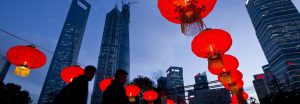Well-known Chinese news site Sina recently reported that China started taking steps to strike back after several U.S. anti-China trade investigations took place. On February 4, the Chinese Ministry of Commerce announced its anti-dumping and anti-subsidy investigations against U.S. sorghum exports to China. China is the biggest buyer of U.S. sorghum and soybeans. About three thirds of the U.S. sorghum exports go to China, which is around 4.8 million tons of sorghum, worth of US$1 billion. This is a high-profit item in the portfolio of U.S. exports to China. The investigation is expected to hurt the business of some American farmers who are considered one of the “cornerstones” of the Trump voter base. The Chinese investigation may take around one year and some bad news may be right in time for the up-coming mid-term election in November. It is possible the Trump administration may react strongly against this Chinese move. However, the total dollar amount of the sorghum investigation is a very small percentage in the US-China trade volume. China is just taking this opportunity to remind the U.S. of the mutual dependency relationship in trade.
Source: Sina, February 6, 2018
http://news.sina.com.cn/c/nd/2018-02-06/doc-ifyrhcqz3042688.shtml

